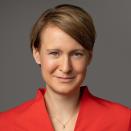An audible sigh of relief emerged from Berlin when Emmanuel Macron triumphed in France’s presidential elections, overcoming right-wing populist Marine Le Pen and her Front National. Germany’s two main parties, Chancellor Angela Merkel’s Christian Democrats (CDU) and the Social Democrats (SPD) led by Martin Schulz, made no secret of their support for Macron and his unabashedly pro-EU stance. From the beginning, Macron vowed to reform his country and to deepen its ties with Germany in particular, eliciting the much-quoted retort from Le Pen: “France will be led by a woman: either me or Ms. Merkel.”
Both the CDU and the SPD are looking to Macron as the European Union’s new hope, reviving the Franco-German tandem, particularly as the EU continues to face various crises: Brexit, populism, the rising threat of terror, refugees, migration, as well as increasing friction among the member states, which had led the EU to the brink of collapse. In Berlin a great deal of hope has been placed on the political newcomer, and for good reason: Macron’s victory in the presidential and parliamentary elections could be the last chance to stabilize and restore the EU’s legitimacy. If his presidency fails, it cannot be ruled out that anti-European and anti-German forces will surge to power in France in five years’ time. Regardless of which party wins the German election in September, it is in Berlin’s own interest that Macron’s presidency will be a success.
It remains to be seen whether the couple franco-allemand will finally be Europe’s integration engine again. In Germany, most signs point to a victory for Chancellor Angela Merkel in September’s elections, but even were Martin Schulz to pull off a dramatic upset, both candidates are strong champions of the European project and closer ties with France.
Still, in some areas, cooperation could be easier said than done.
The Future of the EU
The debate about the EU’s future is playing out against different backdrops on both sides of the Rhine. In France some 40 percent of the electorate chose anti-EU candidates in the first round of voting on the far left and far right of the spectrum. In fact, Macron emerged as the only unequivocally pro-EU candidate in the running.
In Germany, meanwhile, commitment to the EU is part of the political mainstream. Even if the right-wing populist Alternative für Deutschland (AfD) has successfully thrust euroskeptic views into the spotlight, those have not reached the center of political or public discourse. Consequently, Berlin still enjoys greater room for maneuver in European affairs.
Still, crises have battered and destabilized the European Union, and both Germany and France are well aware that the argument for an ever closer union is starting to ring hollow. Macron is therefore championing a differentiated approach to integration – an approach that grants member states willing to integrate deeper more scope to push ahead, particularly in the eurozone and within the realm of Common Security and Defense Policy, but also in energy and digital policies. In these areas, Berlin and Paris are in step.
But Macron is also in favor of a smaller core circle of member states led by the two countries that would function as an avant-garde. Merkel’s government is hesitant to support such an idea, conscious of the criticism that Germany has grown too powerful in Europe. Berlin has sought to protect the interests of less powerful EU countries that are suspicious of a stronger German-French duo.
Neither the CDU nor the SPD has taken up one of Macron’s campaign proposals to establish conventions in each member state in order to enhance the EU’s democratic legitimacy. Since all member states’ governments would need to get behind this idea, it is likely to fall flat.
The Eurozone and Europe’s Economy
The eurozone and economic integration have always been among the points of real friction between Germany and France. The two governments have wrangled over economic policies often in recent years.
Macron’s views on European economic policy took form during his time as economy minister under François Hollande. Today Macron is pushing to overhaul the ailing French economy by reforming the labor market and welfare regulations and consolidating the budget, thereby restoring France’s credibility on the European stage. In Germany, his approach has been well received across party lines.
But Macron’s ambitions do not stop at France’s borders: He is bidding to reshape European policy as well, finding ways to deepen integration and cultivate greater solidarity among member states. He has advocated for a European economics and finance minister for the eurozone, complete with their own budget to finance mutual investment projects, help member states in need, and offer backing in crisis situations.
Such proposals have met with positive response from Schulz and the SPD: They have thrown their support behind Macron’s bid for common European investment projects, and are calling for binding minimum wages across the EU. Chancellor Merkel’s conservatives, meanwhile, have distanced themselves from such initiatives thus far, although Merkel has not ruled them out entirely.
Moreover, the new French president welcomes global free trade but has urged Europe to extend anti-dumping regulations, sharpen laws on foreign investment, and integrate environmental and social standards into the EU’s trade agreements. Macron has also called for a Buy European Act that would ensure that public tenders are only awarded to companies that produce at least half their goods in the EU.
Protectionism does not serve Germany well; it has profited from global trade more than any other European country. That is why Germany’s main parties have largely rejected linking environmental and social standards to any trade agreements. After all, such demands could deal a blow to Germany’s powerful export industry.
Common Defense and Security
There is far more common ground on common defense and security policy (CSDP). Even before the vote, Germany’s Defense Minister Ursula von der Leyen and her French counterpart Jean-Yves Le Drian (now Macron’s foreign minister) released a joint policy paper on expanding the EU’s CSDP.
The policy paper links this deepening cooperation to PESCO, short for Permanent Structured Cooperation, an article in the Lisbon Treaty allowing a core group of member states to integrate security and defense policy without dividing the European Union. The defense ministers also called for a permanent EU headquarters for civilian and military defense and security operations, closer cooperation on logistics, and coordinated training. A revised Athena mechanism for financing common EU military costs would provide a framework for funding CSDP initiatives. The SPD has already signalled its approval of many of these proposals.
Macron aims not to build a European army, but rather to better coordinate member states’ existing resources and create a path toward a European defense union. The French-German partnership stands at the core of that policy. Merkel and Schulz are well aware that common defense and security would grant France a platform to appear bold and strong, on equal footing with Germany (and thus make Germany look less dominant).
France suffered a series of major terror attacks in 2015-16 that reshaped its security and counterterrorism policy. Like his predecessor, Macron sees military missions abroad as a key element of counterterrorism and has vowed to carry forward the military’s current engagements along with its partners. That is why Paris is likely to demand more military engagement from Berlin. In Germany, however, opposition toward military missions abroad remains significant.
Merkel and Macron believe military cooperation with the US is still a core element of European defense. Schulz, however, has positioned himself as the anti-Trump, and would seek to untangle defense and security cooperation with Washington. While Merkel and Macron have pledged to ramp up defense spending and meet the two percent GDP target for NATO members, Schulz has argued he will not bow to Trump’s ambitious weapons aims.
The Refugee Debate and Schengen
The refugee crisis of 2015 tested ties between Germany and France: Paris and Berlin strove for common solutions but were driven apart by their different interests. Asylum policy will remain a core issue that will require them to work together constructively – especially because the EU has yet to come up with a sustainable solution to the influx of refugees and migrants.
Macron has advocated defensive measures and called for a reform of the Dublin asylum system. He has proposed the fast-tracking of asylum and deportation procedures and checkpoints in the refugees’ countries of origin and transit areas.
His proposals are in line with Chancellor Merkel’s strategy. The German leader has launched a campaign to strike deals with countries of origin and transit countries, like Turkey and Afghanistan, in order to stem the flow of migration. Macron has pledged more development aid as well to help create opportunities there and battle smuggling operations – proposals welcomed by both the CDU and the SPD.
Although Macron was the only candidate to praise Germany’s refugee policy during the presidential campaign in France, he has not indicated that his government would be willing to take in more asylum seekers. Instead, he is seeking a fair distribution of refugees across Europe and sanctions levied against member states that refuse to honor their obligation.
More “solidarity” in the fair distribution of refugees and migrants has also been championed by Schulz. He has avoided speaking of sanctions but has indicated that he would try to link refugee policy with the distribution of funding for agriculture and infrastructure. Merkel, on the other hand, has positioned herself against any initiatives to punish uncooperative member states with fines.
Macron has also argued for the need to strengthen the EU’s external borders; he has suggested making Frontex more robust, adding 5,000 new positions and additional resources and responsibilities. Both the CDU and the SPD have made the securing of external borders a focus as well. At the same time, Macron has made clear he stands behind the Schengen agreement, championing the free movement of people. This does not prevent him from striving to reform the guidelines for foreign (“posted”) workers, though.
Europe in Paris
The new French president is a crucial partner for Germany in the attempt to reform the European Union. He is the most EU- and Germany-friendly leader France has seen in years, if not in history. On the campaign trail and now in office, he has strived to both show French voters the benefits of European integration and make Paris a powerful player in Brussels. The strengthening of the Franco-German tandem is at the core of this: His cabinet includes several policymakers with close ties to Germany, like Economy Minister Bruno Le Maire (see our Close-Up of him in this issue), and Philippe Etienne, ambassador to Germany 2015-17, who now serves as one of the president’s top foreign policy advisers.
Both Merkel and Schulz have already emphasized that they are ready to work closely with the French president. “Mercron” has the potential for advances in the defense and security field and with regard to migration policy, whereas eurozone reform and implementing a “social Europe” would be easier with “Schucron.”
However, the next German chancellor and the French president are likely to face major structural hurdles in further strengthening Paris-Berlin ties. Many French voters are still skeptical of an overly powerful EU – and of Germany, the most dominant member, in particular. Macron’s proposals for eurozone reforms are highly unpopular among Germans who are wary of carrying the financial burden while other member states continue to pile up debt.
Paris and Berlin will need to strike clear agreements to show their own citizens the will to compromise goes both ways – the first steps in deepening trust and cooperation for the path forward.

